How to check an organization: 25 ways to check firms
In this material, I have combined many ways to check the organizations with which you are going to cooperate. Checking a company is actually quite simple: just follow the steps according to the checklist below. Almost all of the above methods of checking companies are free.
Why is it simply necessary to think about checking firms?
At a minimum, because without verification actions you:
1. Risk losing money;
2. You run the risk of running into claims from the tax and law enforcement agencies (for allegedly participating in cash-out schemes, relationships with one-day people, etc.)
3. You risk getting your checking accounts blocked.
- the legal entity itself;
- directors/founders/authorized persons;
- the deal itself.
In most cases, this can be done by TIN or company name. I will try to post soon more detailed guides on individual services with some "goodies".
Through which services can you check the organization?
One of the main services for checking legal entities. Search is possible by TIN or by the name of the organization. The service is located on the website of the tax office and can be used free of charge. The result of the company search is up-to-date information from the Unified State Register of Legal Entities in the form of an extract.
The most important thing that allows you to check the service (and what is very often ignored when concluding a deal! - which is just a paradox) - the reality of the existence of the organization.
In the statement you can see the information:
- about the director;
- about the founders;
- date of establishment of the legal entity;
- information on reorganization, liquidation, etc.;
- the size of the authorized capital;
- OKVED codes and other information.
An extract from the Check Yourself and Counterparty service can also be used to attach to a claim in the event of a litigation in arbitration courts.
You can check both individual entrepreneurs and legal entities.
The service allows you to “break through” the debts of the company, which have already reached the point of enforcement before the bailiff service.

Allows you to evaluate:
- the presence and total amount of debts of the organization (respectively, its relations with other companies);
- the presence of claims from the tax inspectorate, the FIU, etc.;
- probability of bankruptcy of a legal entity.
Through this database, you can also find the debts of the director of the organization and its founders. It can also reveal a lot about them, and in some cases may have immediate consequences for you (for example, contesting transactions).
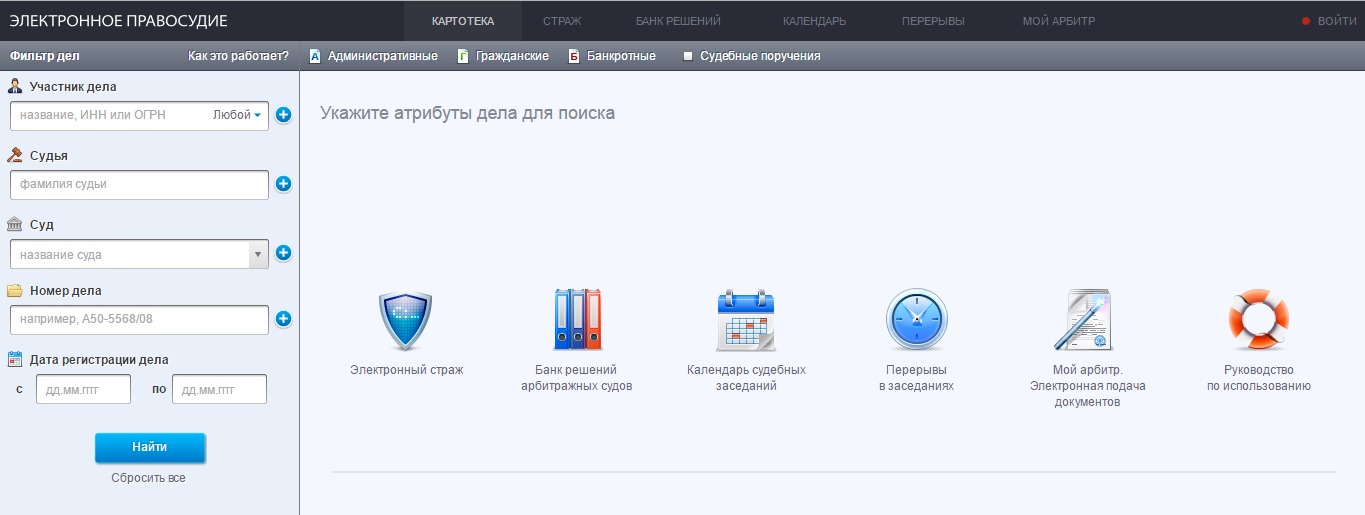
There are also very important file cabinets reflecting disputes in arbitration courts throughout Russia.
On the one hand, the presence of disputes in the courts is an indicator of the real activity of the company, and this gives some confidence that you are not dealing with a one-day business.
However, for a deeper analysis, it is better to study the most typical court decisions on this legal entity and especially pay attention to whether there are any court decisions related to its bankruptcy. Also look at how regularly your potential counterparty pays off with its partners and how demanding in relations with them.
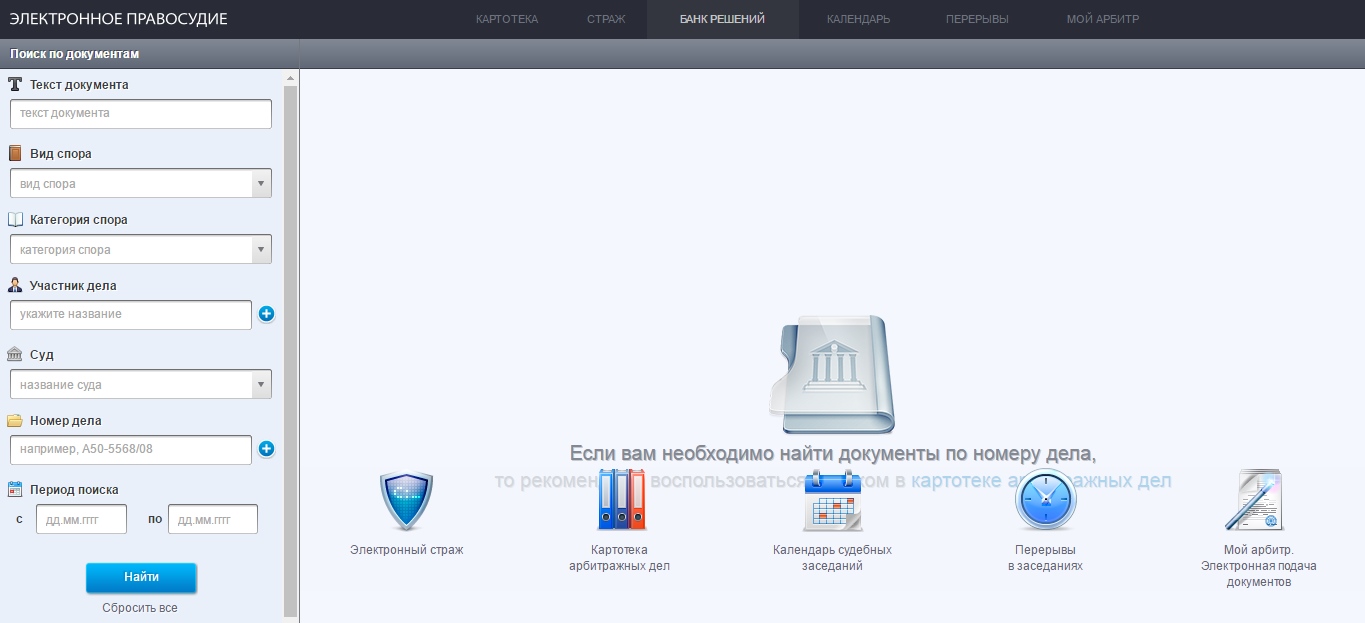
Information about the bankruptcy of legal entities is officially published in Kommersant. There you can find information not only about the very fact of declaring bankrupt, but also other information provided for by bankruptcy law (for example, about meetings).
Also useful in this regard is the "Unified Federal Register of Bankruptcy Information" bankrot.fedresurs.ru.
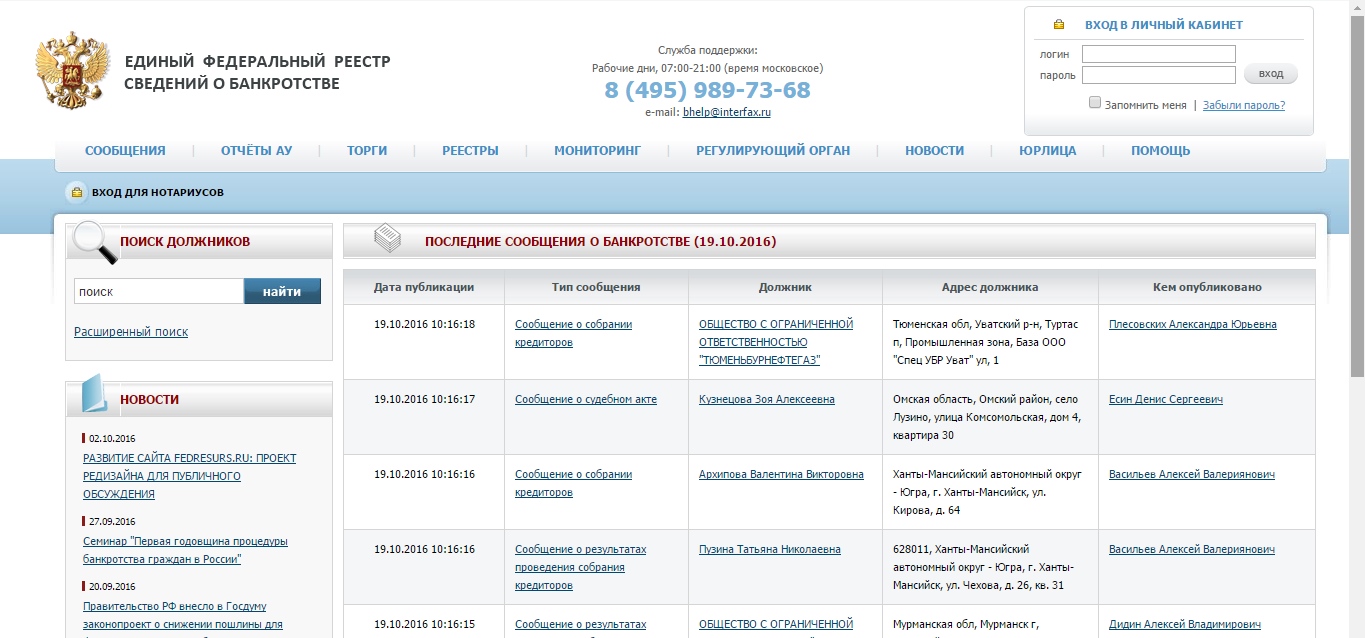
Non-state service - an aggregator of judgments of arbitration courts and courts of general jurisdiction. Possibility of search by judges, by regions, by specific representatives.
The greatest usefulness is when searching for decisions of courts of general jurisdiction in relation to the director and founders of a legal entity.
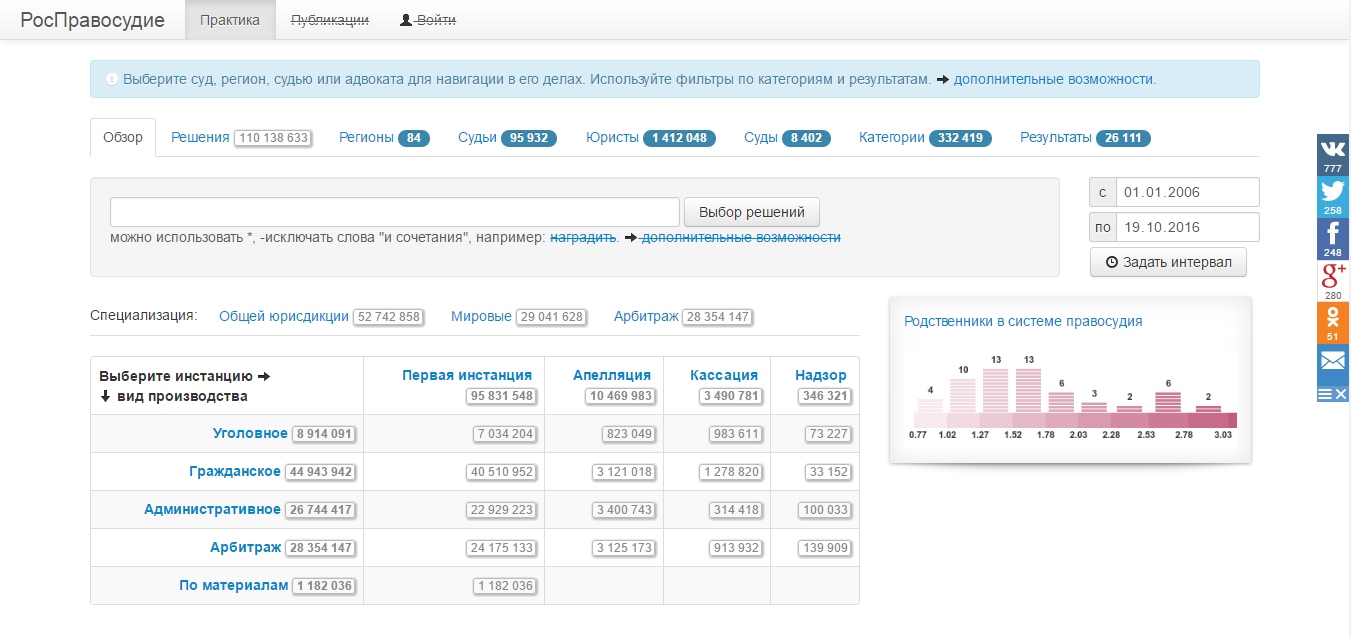
Checking is useful because:
- allows you to find out if the organization belongs to small or medium-sized businesses (in some cases this matters);
- shows that the organization submitted reports in the last reporting period, since it is on the basis of these data that the status is assigned.
![]()
Direct utility, of course, for state and municipal organizations.
However, if your potential counterparty is on this "black list" - this is a reason to think about his honesty.
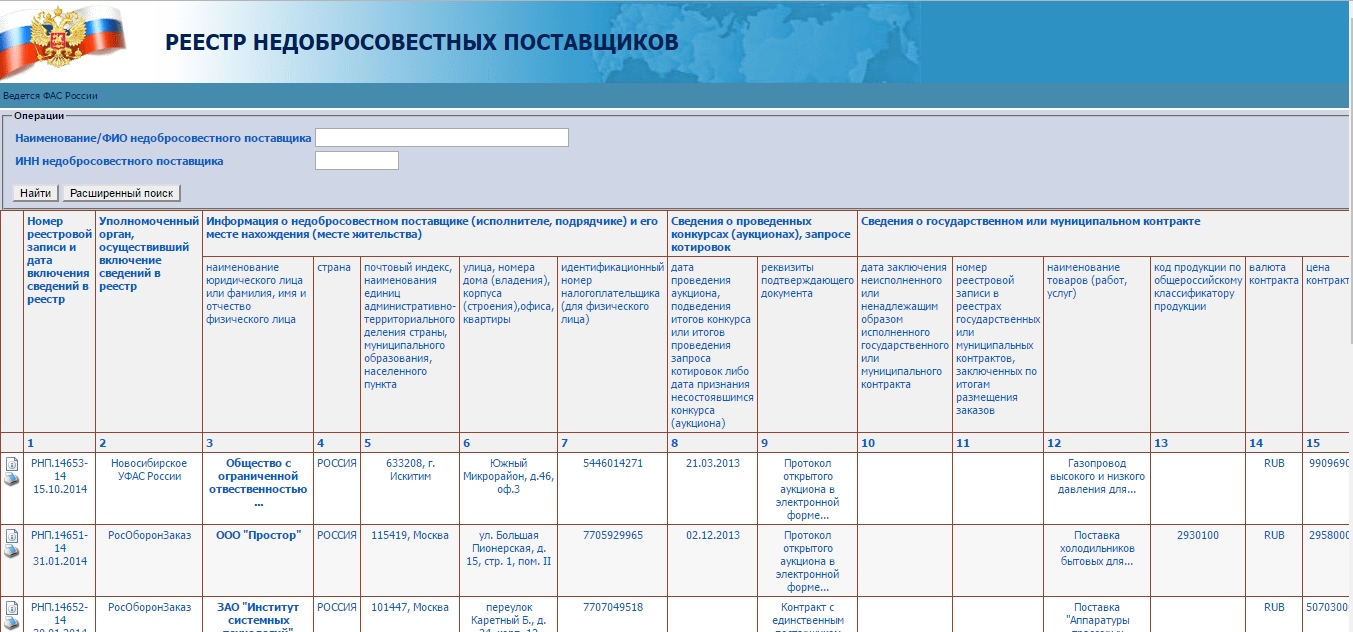
Popular
- How to get a TIN: possible ways
- What kind of business can you do?
- Written notice of termination of the lease
- Business from scratch. Things to do?
- Cost of goods sold: formula, methodology and calculation example
- How to write a vacation application - examples
- What kind of business can be opened in a small town or village?
- The formula for calculating the cost of services, products sold and total cost
- Sample memorandum: I bring to your attention
- Example of an explanatory note for being late for work




